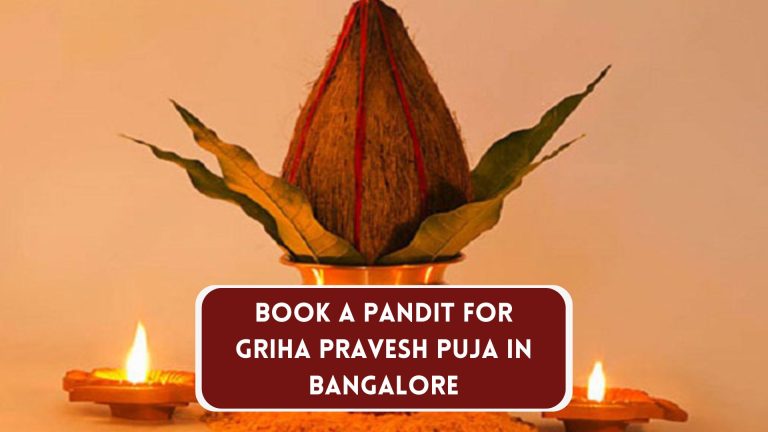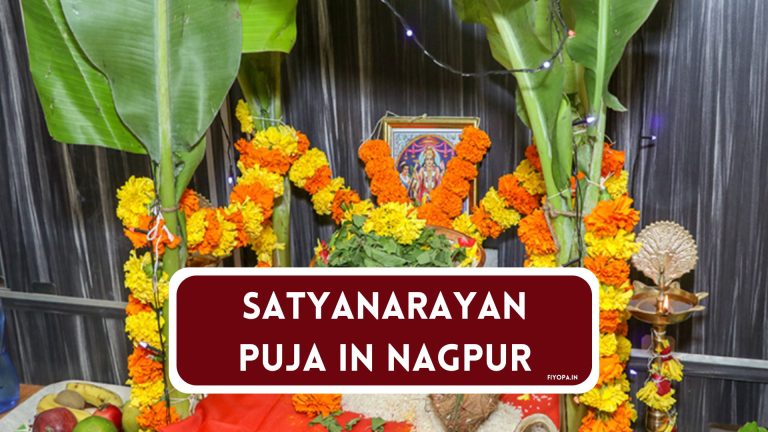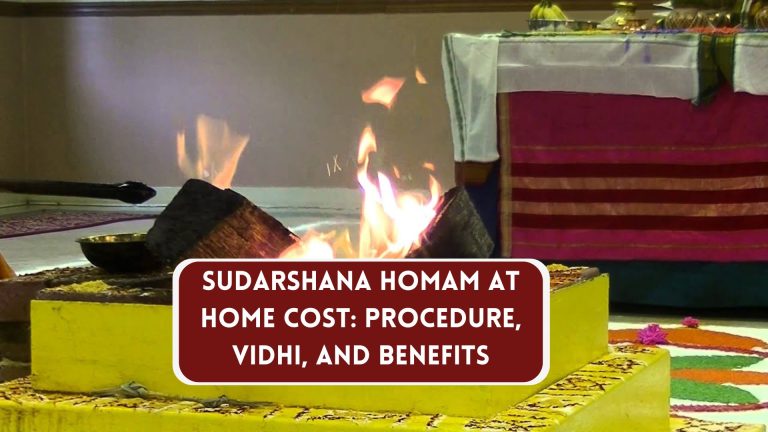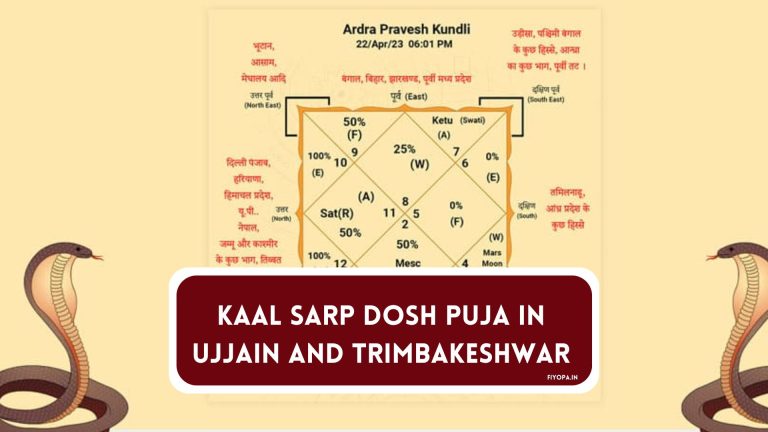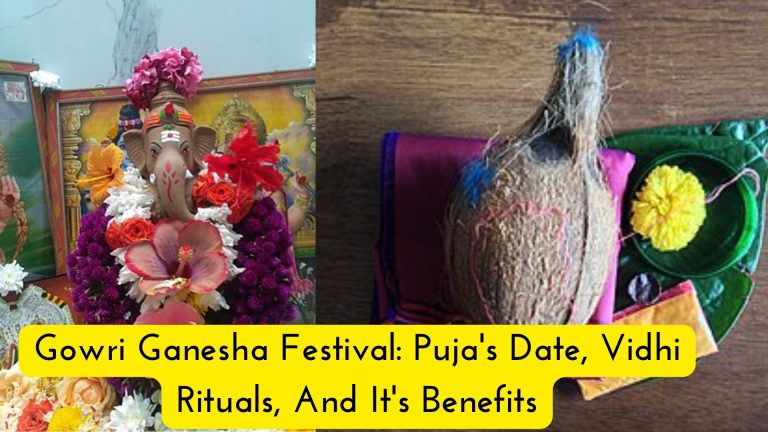Pandit For Puja in Mumbai: Fees, Vidhi, and Booking Process

Welcome to Fiyopa. We provide pandit for puja in Mumbai. Hinduism is a vast and diverse religion with many traditions and customs, including the practice of pujas. A puja is a ritual of worship performed to honor and connect with the divine. In this blog post, we will explore the significance of Hindu pujas like Ganesh Puja, Nav Navgraha puja, Saraswati Puja, Shiva Puja, Lakshmi Puja, jaap, 16 Sanskar, Durga puja in Mumbai
Hindu Festivals and their Rituals in Mumbai.
Hinduism is a religion that celebrates numerous festivals throughout the year. Each festival has its unique significance and rituals that are followed by Hindus all over the world. Here are some of the most popular Hindu festivals and their rituals:
- Diwali: Diwali, also known as the festival of lights, is one of India’s most widely celebrated festivals. It marks the victory of good over evil and is celebrated by lighting diyas (lamps) and candles. People also decorate their homes with rangolis (patterns made with colored powder), wear new clothes, and exchange sweets and gifts. On the day of Diwali, many Hindus also perform Lakshmi Puja, a prayer to the goddess of wealth and prosperity.
- Holi: Holi is the festival of colors, celebrated on the full moon day in the Hindu month of Phalguna. The festival marks the victory of good over evil and the arrival of spring. On Holi, people throw colored powder and water at each other, sing and dance, and eat special sweets like gujiyas and math. Holi is also a time to forgive and forget; people often mend broken relationships and make new friends.
- Durga Puja: Durga Puja is a festival that celebrates the victory of the goddess Durga over the demon Mahishasura. It is celebrated in the Hindu month of Ashwin and is a five-day-long festival. On the first day, a clay idol of the goddess Durga is installed in pandals (temporary structures), and on the fifth day, the idol is immersed in water. During the festival, people worship the goddess, offer her flowers, and perform aarti (a ritual of waving a lamp before the deity). They also wear new clothes, eat special food, and participate in cultural programs.
- Ganesh Chaturthi: Ganesh Chaturthi is a festival that celebrates the birth of Lord Ganesha, the elephant-headed god of wisdom and prosperity. The festival is celebrated in the Hindu month of Bhadrapada and lasts ten days. On the first day, a clay idol of Lord Ganesha is installed in homes and pandals. During the festival, people offer prayers to Lord Ganesha, perform aarti, and offer him sweets and fruits. On the tenth day, the idol is immersed in water.
- Janmashtami: Janmashtami is the birthday of Lord Krishna, the eighth avatar of Lord Vishnu. The festival is celebrated in the Hindu month of Shravana and marks the victory of good over evil. Today, people fast, pray for Lord Krishna, and participate in cultural programs. They also prepare special dishes like kheer and poha to offer to the deity.
- Navaratri: Navaratri is a nine-day-long festival that celebrates the victory of the goddess Durga over the demon Mahishasura. It is celebrated in the Hindu month of Ashwin and is a time to worship the nine forms of the goddess. During the festival, people fast, offer prayers to the goddess and participate in cultural programs like Garba and Dandiya.
Book pandit for any Hindu puja in Mumbai City and the nearest place in Mumbai
The Importance of Pandits in Hindu Puja Rituals in Mumbai.

A pandit is a trained and experienced Hindu priest who performs pujas, or religious rituals, for devotees. In Hinduism, pujas are an essential part of spiritual practice. Performing them with proper rituals and mantras is believed to bring the participants blessings, positive energy, and good fortune.
Here are some key reasons why having a pandit perform the puja is important:
- Expertise in scriptures and rituals: Pandits have extensive knowledge of Hindu scriptures and rituals, and they know how to perform pujas by the tradition and the specific needs of the devotees. They understand the significance of each ritual and how to perform it correctly to invoke the blessings of the deities.
- Mantra chanting: Mantras are powerful sounds or words during pujas to invoke the deities and establish a connection with them. Pandits have expertise in chanting mantras with proper pronunciation, intonation, and rhythm, which is essential for the effectiveness of the puja.
- Attention to detail: Pujas involve several rituals, offerings, and decorations, and it is crucial to perform each step with attention to detail and precision. Pandits have experience conducting pujas and know how to pay attention to every detail to ensure that the puja is performed correctly.
- Spiritual guidance: Pandits perform pujas and offer spiritual guidance to the devotees. They can help explain the meaning and significance of each ritual, guide how to lead a spiritual life, and answer any questions the devotees may have.
- Positive energy and blessings: Pandits are believed to have a positive aura and the ability to invoke blessings from the deities. By performing pujas with devotion and sincerity, they create a positive energy field that can uplift the spirits of the participants and bring them closer to the divine.
Having a pandit perform the puja brings many benefits, including expertise in scriptures and rituals, proper mantra chanting, attention to detail, spiritual guidance, and blessings. Their skills, knowledge, and experience make them an invaluable asset in conducting pujas and maintaining the rich tradition of Hinduism. Book your Pandit for puja in Mumbai.
Some Tips for Puja Preparation.
Preparing for a puja ceremony at home can be a wonderful way to connect with the divine and invite blessings into your life. Here are some tips to help you prepare:
- Choose a puja: The first step is to choose the type of puja you want to perform. This could be a simple daily puja, a special occasion, or a specific deity puja. Research the requirements of the puja and make a list of the items you will need.
- Set up the puja room: Choose a clean, quiet, and well-ventilated room in your home for the puja. Clean the room thoroughly and decorate it with flowers, candles, and other puja items. Set up the altar with the deity’s idol or image, and place a clean cloth over it.
- Gather puja items: The items required for a successful puja vary depending on your performing type. However, some common puja items include incense, camphor, flowers, fruits, sweets, rice, turmeric, and vermilion powder. Make sure you have all the required items before starting the puja.
- Follow the puja ritual: Follow the puja ritual step-by-step as per your knowledge or take guidance from a priest. Light the lamp and incense, offer flowers and other offerings to the deity, and recite the prayers and mantras. Ensure you focus on the puja and maintain a peaceful environment throughout the ceremony.
- Complete the puja: Once it is complete, offer prasad to the deity and distribute it among the family members. You can also perform arati with the lamp to conclude the puja ceremony.
- Clean up: Clean up the puja room after the ceremony. Remove the flowers, fruits, and other offerings and dispose of them properly. Store the puja items in a designated place for future use.
Remember, puja is a sacred ceremony that requires sincerity and devotion. Follow these tips to ensure a successful puja and experience the divine blessings. For Booking Pandit for puja in Mumbai Call us.
What are The Benefits of Performing Puja?

Puja is a ritualistic and devotional practice in Hinduism and other Indian religions. It involves offering prayers, flowers, incense, and other items to a deity or a divine entity. Puja is performed to seek the blessings of the divine and establish a connection with them. Performing puja has many spiritual benefits, which can help people connect with their spirituality and lead a more meaningful life.
One of the primary spiritual benefits of puja is that it helps individuals develop a deeper sense of devotion and faith. By performing puja regularly, individuals can connect with the divine and feel a sense of inner peace and harmony. This can help them cultivate a positive attitude toward life and develop a stronger sense of purpose.
Puja can also help individuals develop a sense of gratitude towards the divine. By offering prayers and expressing gratitude, individuals can develop a greater appreciation for the blessings in their life. This can help them focus on the positive aspects of their life and develop a more optimistic outlook.
Furthermore, puja can help individuals better understand their spiritual path. By connecting with the divine, individuals can gain insights into their life purpose and develop greater clarity about their goals and aspirations. This can help them make more conscious choices and align their actions with spiritual values.
Another spiritual benefit of puja is that it can help individuals develop a sense of interconnectedness with the universe. By recognizing the divine presence in all things, individuals can develop greater empathy and compassion toward others. This can help them cultivate deeper relationships and develop a greater sense of community.
The Common Misconceptions About Puja.
Puja is a Sanskrit term that refers to the worship and devotion performed by followers of Hinduism, Buddhism, and other Eastern religions. Despite its long history and widespread practice, there are still many misconceptions about puja that persist today. This article will explore some of the most common misconceptions and explain the truth behind them.
Puja is only for Hindus
One of the most common misconceptions about puja is that it is only for Hindus. While it is true that puja is deeply rooted in Hinduism, it is also practiced by Buddhists, Jains, Sikhs, and other Eastern religions. Puja is a way to connect with the divine, regardless of religious affiliation.
Puja is a form of idol worship
Another common misconception about puja is that it is a form of idol worship. While it is true that puja often involves using statues or images of deities, these are not worshipped as gods in and of themselves. Instead, they are seen as symbols of the divine, which helps practitioners focus their minds and hearts on the divine presence.
Puja is all about rituals and ceremonies
Many people consider puja a series of rituals and ceremonies, but it is much more than that. Puja is a way of life, a way of living in harmony with the divine and with one’s fellow human beings. It involves acts of devotion, prayer, meditation, and acts of kindness, charity, and service to others.
Puja is only for the wealthy and privileged
Some people believe that puja is only for the wealthy and privileged, but this is not true. Anyone can practice Puja, regardless of their social or economic status. Many puja rituals and ceremonies are designed to be accessible to everyone, regardless of their means.
Puja is a form of superstition
Finally, some people view puja as a superstition, but this is also false. Puja is based on a deep understanding of the interconnectedness of all things, and it seeks to cultivate a sense of awe and reverence for the divine in all aspects of life. It is a deeply spiritual practice that can help practitioners to develop compassion, wisdom, and inner peace.
How to Book Pandit for Puja in Mumbai?
If you want to book a Pandit for Puja in Mumbai, Fiyopa is the perfect Pandit service website. Fiyopa provides experienced and knowledgeable pandits who can perform all the necessary rituals and ceremonies for your wedding. To book a pandit, visit Fiyopa’s website and provide details about your wedding date, time, and location. You can also specify any specific requirements or rituals you may want to include. Once you submit your request, Fiyopa will provide you with a list of available pandits, and you can select the one that best fits your needs. With Fiyopa, you can be assured of a hassle-free and memorable wedding ceremony.
FAQs: For Pandit For Puja in Mumbai
Answer: We offer pandit services for various types of pujas, including but not limited to wedding ceremonies, housewarming, griha pravesh, Satya Narayan puja, and other religious ceremonies.
Answer: We provide pandit services for Puja in Mumbai and nearby areas.
Answer: Our website lets you book a pandit for Puja in Mumbai. You can select the date and time of your Puja, and we will assign a pandit for the same.
Answer: The cost of booking a pandit for a Puja depends on the type of Puja and the duration of the service. You can contact us to get a quote for your specific requirements.
Answer: Our pandits are highly experienced and knowledgeable in Hindu rituals and customs. They are well-versed in Vedic scriptures and trained in conducting various pujas.
Answer: If you need to reschedule or cancel your Puja, you can contact us through our website or customer service number. We will try our best to accommodate your requests, but cancellations made at short notice may be subject to cancellation charges.
Answer: We can arrange all the required materials for your Puja, including flowers, fruits, incense, and other puja samagri. These will be charged separately based on your requirements.
Answer: We can customize the Puja per your preferences and requirements. You can discuss your specific needs with our pandits, and they will try their best to accommodate your requests.
Answer: Our pandits will guide you through the entire process of the Puja, including any preparations that need to be made before the Puja. You may be required to arrange certain items, such as a puja thali, a clean space for the Puja, and other necessary items.
Answer: The duration of the Puja depends on the type of Puja and the specific rituals involved. Our pandits will give you an estimate of the duration of the Puja when you book the service.

